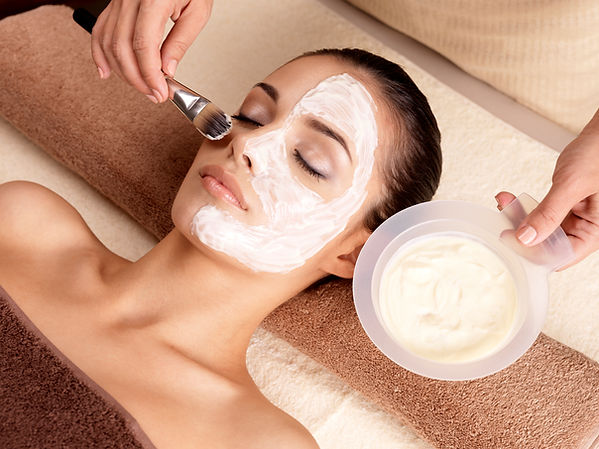top of page
(916) 659-6915
Care Reconnected
of a Chemical Peel
Benefits
Chemical peels are a popular cosmetic procedure used to improve the appearance and texture of the skin. They involve applying a chemical solution to the skin, which causes the outer layer to peel off, revealing smoother, fresher skin underneath. There are several benefits associated with chemical peels:
It's important to note that the benefits of a chemical peel can vary depending on the type of peel, the specific skin issues being targeted, and individual skin characteristics. Different types of chemical peels, such as superficial, medium, and deep peels, offer varying degrees of exfoliation and downtime.
Improve Skin Texture
Reduce Hyperpigmentation
Treat Acne
Improve Skin Tone
Reduce Pore Size
Reverse Sun Damage
Boost Collagen Production
Enhance Absorption of Skincare Products
Minimal Downtime for Light Peels
Youthful Appearance
for Chemical Peels
Aftercare
Proper aftercare is crucial following a chemical peel to ensure optimal results and minimize the risk of complications. Here are some general guidelines to follow after getting a chemical peel:
1. Avoid Sun Exposure: Protect your skin from direct sun exposure for at least a week after the peel. UV rays can cause further damage to the newly revealed skin layers and increase the risk of hyperpigmentation. If you need to be outdoors, use a broad-spectrum sunscreen with an SPF of 30 or higher.
2. Gentle Cleansing: Cleanse your face gently with a mild, non-abrasive cleanser. Avoid harsh scrubbing or exfoliation for several days to avoid disrupting the healing process.
3. Moisturize: Keep your skin well-hydrated with a gentle, fragrance-free moisturizer. Look for products containing ingredients like hyaluronic acid, ceramides, or glycerin to help restore and maintain moisture levels.
4. Avoid Makeup: Refrain from using makeup for at least the first few days after the peel. Once your skin has healed sufficiently, use non-comedogenic makeup products to prevent clogging pores.
5. Skip Exfoliants: Avoid using any products with exfoliating agents (like alpha hydroxy acids, beta hydroxy acids, retinol, or physical exfoliants) for a week or as advised by your professional.
6. Stay Hydrated: Drink plenty of water to keep your skin hydrated from within. Proper hydration supports the healing process.
7. Avoid Picking or Peeling: It's natural for your skin to start peeling a few days after the peel, but avoid picking or peeling the skin manually. This can lead to scarring and infections.
8. No Hot Baths or Saunas: Refrain from using hot tubs, saunas, and hot showers for a few days after the peel, as heat can exacerbate inflammation.
9. Avoid Strenuous Exercise: Intense physical activity that causes sweating should be avoided for a few days to prevent irritation and further skin damage.
10. Use a Humidifier: If you're in a dry environment, consider using a humidifier to help maintain optimal moisture levels in the air and prevent excessive dryness.
11. Patience: Healing and results take time. Your skin may continue to improve over several weeks as the old skin sheds and new skin emerges. Be patient and give your skin the time it needs to heal properly.
If you experience any unusual or severe side effects, such as severe redness, swelling, blistering, or persistent pain, contact your skincare professional immediately. Remember that different types of chemical peels can have different aftercare requirements, so always follow the instructions provided by our aestheticians.
bottom of page

